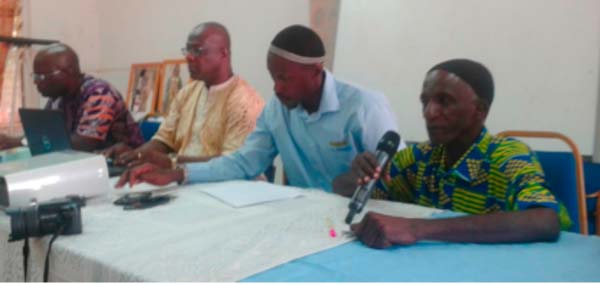
The
National Agricultural Land and Water Management Development Project, better
known as NEMA, is embarking on a four-day training designed to enhance the
skills of women and youth on business planning and management of income
generating activities.
The
training which started on Monday at the regional education directorate in
Basse, Upper River Region, is bankrolled by African Development Bank (AfDB)
through a project entitled ‘Building Resilience against Food and Nutrition
Insecurity in the Sahel’ (P2RS).
Speaking
on the occasion, Ousman M. Colley, regional agricultural director, Central
River Region south, said the alarm bell is ringing for women and youth to
develop bankable business plans so as to access funding, particularly the
agricultural matching grants available within projects in the country.
“We
have millions in the coffers of the agricultural projects because we cannot
develop bankable business plans, the grants are not moving,” he said
emphatically.
Mr
Colley noted that the agricultural projects are doing their utmost best in
making funds accessible to all deserving youth and women. He said this is why agricultural projects are
launched in all the regions and followed by several trainings and
sensitisations to reach rural dwellers.
The
regional agricultural director commended Nema P2RS project for “the timely
training”, saying capacity building is fundamental in national development.
A
representative of the governor of URR, Victor Baldeh also hailed Nema for
reaching out to rural youth and women by building their skills on
entrepreneurship, business planning and business management.
He
said agricultural projects are supporting and improving the livelihoods of
rural youth and women through such training as the one organised by Nema.
Banky
Njie, Nema P2RS Business Development Officer, explained that the training will
be conducted in three regions: Upper River, Central River south and North Bank
regions.
Through
the P2RS, 150 young people, male and female, would be trained to enhance their
skills in business planning and management, and ways to generate more revenue
in any chosen business activity.
Mr
Njie said at the end of the three trainings, they will do an assessment of the
participants, and successful participants will graduate to the next stage. At this stage, some funding would be provided
to those who have demonstrated entrepreneurial competencies and willingness to
use the funds to scale up or start their businesses.
In
addition to funding, there would also be mentoring and coaching to further the
fund recipients skills to enable them to better manage and grow their
businesses or make them more employable within the agricultural value chain.
The
business development officer said the ultimate objective of the training and
its related activities are to build the entrepreneurial skills of women and
young people as a way to reduce the dependency ratio and to put an end to the
rampant irregular migration that has caused the lives of several youth.
Ade
Joseph Taylor, managing partner, Executive Group Ltd, said at the end of the
training, the participants are expected to avoid failing in their businesses.
He
said with the calibre of the trainers and mentors provided to facilitate the
training, the future of the rural women and youth is bright.
Sanna
Jaina, Nema focal point, agriculture officer, chaired the opening
ceremony. The four-day training includes
question and answer sessions, individual and group work session, and
step-by-step guidance in developing business plan.
Read Other Articles In Article (Archive)
Young Kaur Footballers Set up Academy
Mar 31, 2009, 7:31 AM



